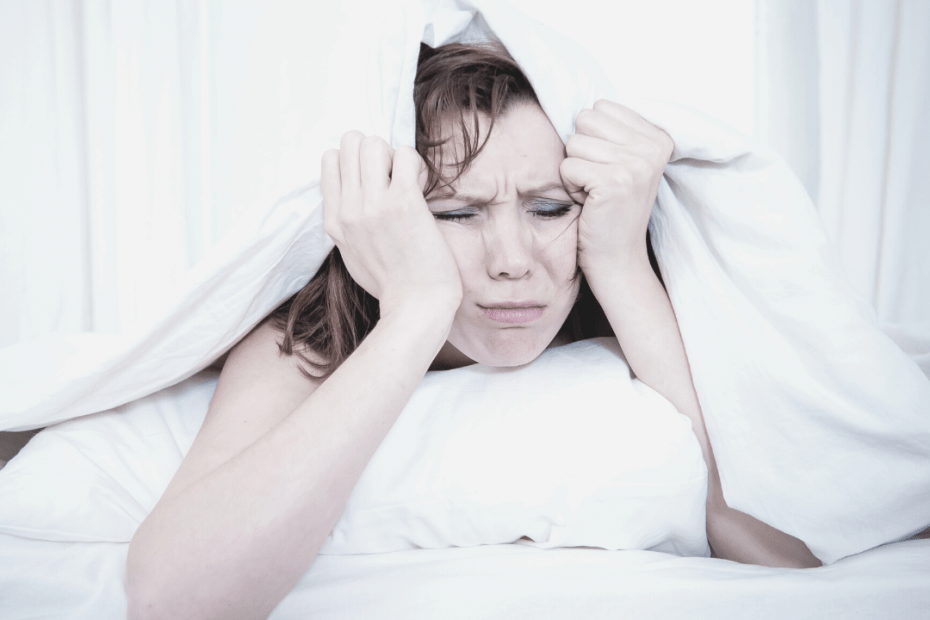You might be getting flashbacks of a parent telling you to “go to bed”, but getting proper sleep is probably some of the best online therapy advice you can receive. Where it once was merely generational advice being passed along according to social norms (or desperate parents who needed some time for themselves), we know much better today.
The research conducted into sleeping has been quite extensive and revealing. Today, we give you a little peek behind the closed eyelids. We give you some background information and reveal why proper sleep is so important, and that it can actually mean life or death.
The Russian Sleep Experiment
No, we’re not talking about the fictitious torture of political prisoners doing the rounds on the internet. But the real story is also not for the faint of heart. In 1894 the Russian physician and scientist, Marie de Manaceine, conducted an experiment on sleep deprivation.
During the experiment, puppies were used and after a few days of absolutely no sleep, they all died. This experiment was replicated by the Italians who had the same result with the dogs dying between 9-17 days after being kept awake by walking them constantly.
Fatal Insomnia
Most of us know what struggling to fall asleep feels like. Many others know what insomnia feels like. This is a level beyond just struggling to fall asleep, can last for days, and can require medication to re-establish healthy sleeping patterns. But some suffer from a disorder called Fatal Insomnia. As far as we know, this is mostly a hereditary disorder that lies dormant for many years.
It starts rearing its head between the ages of 30-60 when the patient begins experiencing symptoms of Insomnia. But this escalates to a point where the person simply cannot sleep at all. The prognosis is terminal and the patient usually dies after 9 months to a year. In many instances, this comes as almost a welcome release from incredible suffering up till then.
So, What Happens When We Don’t Get Proper Sleep?
Disruptions in our sleeping patterns can result in various issues that impact major biological systems such as:
Being More Susceptible to Physical Illness
A lack of sleep or a lack of quality sleep can lower your immunity, making you much more susceptible to catching a bug. Once ill it can also turn into a bit of a vicious cycle with the illness causing further sleep disruptions. Studies have also found that a lack of sleep can increase your chances of developing serious illnesses such as cancer, heart conditions, and diabetes.
Impaired Brain Function
Disruptions in one’s sleep patterns have serious consequences on important brain functions such as decision-making, problem-solving, memory, reasoning, alertness and reaction. The Experimental Brain Research Institute conducted a study with 18 men.
These men were asked to perform a task after a good night’s sleep and then asked to perform another task after not sleeping at all. Needless to say, the second task didn’t go so well.
We Stop Learning
Research has proven that sleep plays an essential part in our brains consolidating what we learn. So, for us to take in new information and then have it committed to memory, we need proper sleep.
We Stop Having Sex
Turns out that the best online therapy advice also relates to sex therapy. A lack of sleep sends your libido in a downward spiral. This counts for both men and women. Sleep-deprived men show a drastic decrease in their testosterone levels and women who sleep only 5 hours or less show a decrease in sex hormones of a staggering 10-15%! These statistics merely get worse with every passing night of getting no quality sleep.
You Can Start Experiencing Microsleep
In extreme cases, the body can actually become so desperate for sleep that you will experience what we call microsleep. That’s when you fall asleep for a couple of seconds without realising it.
Whilst this might not seem like such a big deal whilst sitting at your desk at work or on the couch at home, it becomes a major problem when you’re driving or operating heavy machinery. You have absolutely no control over microsleep and also cannot predict when it will occur, so it can become extremely dangerous.
It Affects Your Mental Health
Anyone who has ever been tired can relate to the irritation felt or increased annoyance for no apparent reason. That’s because sleep deprivation impacts the central nervous system. And whilst a night or two of disrupted sleep can make you a bit more impatient or make you prone to mood swings, a few nights of serious Insomnia can have more extreme consequences.
These can vary from a lack of impulse control (yes, the best online therapy advice is also never to do late-night online shopping), and depression, to paranoia and even suicidal tendencies.
It Can Stunt the Development of Children
A lack of quality sleep can decrease the production of the growth hormone. This growth hormone is essential when it comes to the development of the body – from building muscles to repairing tissues and cells. Therefore a lack of sleep can have dire consequences for a growing child and leave lasting developmental “scars”.
The Sleep Deprivation Timeline
Sleep deprivation can be divided into a timeline of 5 stages. Each has its own signature symptoms and consequences. Here’s what to expect:
Stage 1 – After 24 Hours
At this stage, you’ll be operating at the same capacity as you would with a blood alcohol level of 0.10% (higher than the legal driving limit in most parts of the world). You can also experience any of the following: puffy eyes, dark circles under the eyes, tremors, food cravings, reduced coordination and decreased alertness, drowsiness, increased stress and levels of irritation, unwarranted anger, brain fog, being accident and error-prone.
Stage 2 – After 36 Hours
During this stage you can experience microsleep of up to 30 seconds at a time, have an increased appetite, feel extreme fatigue, suffer from inflammation in the body and an impaired immune system, have impaired memory, struggle to process or retain new information, have a slow reaction time, experience behavioural changes and struggle to read or react to social cues.
Stage 3 – After 48 Hours
At this stage, you have entered an extreme lack of sleep. You will not only be experiencing microsleeps, but you’ll also start to hallucinate. All other symptoms will also become more intense such as having sky-high anxiety and stress levels, extreme fatigue, and extreme irritability.
Stage 4 – After 72 Hours
At this stage, your sleep deprivation has turned into a very serious and dangerous situation. Microsleeps are longer, hallucinations are even more complex, your thinking will be completely disorganised, and you will be suffering from delusions.
Stage 5 – After 96 Hours
At this point, your existence will become pretty unbearable. Your perception of reality will be extremely distorted, you will probably be in full-blown psychosis, and the fatigue will be overwhelming.
How Much Sleep Should You Be Getting?
This depends from person to person. Although the “8 hours a night” we hear so often is a good general guideline, it doesn’t leave much room for individuality. Some of the best online therapy feedback people have received is that we’re all different. Instead of fixating on 8 hours, rather try to stay between 5 to 8 hours of sleep a night.
Helpful Tips for Getting a Good Night’s Rest
If you are prone to sleepless nights or struggle to fall asleep, the following tips could help you grab some much-needed shut-eye:
- Limiting or avoiding caffeine intake after lunchtime (whether coffee, energy drinks, tea, or sodas such as Coke).
- Limiting or avoiding alcohol.
- Avoid having big meals at least a few hours before bedtime.
- Limiting or refraining from taking naps throughout the day.
- Getting into a fixed sleep routine where you wake up at a specific time and go to sleep at a specific time every day (irrespective of whether it’s the weekend or a holiday).
- Start winding down an hour before going to bed. This can include taking a nice, relaxing bath, meditating, or reading (please note that this does not include things such as scrolling through your social media accounts or watching TV – you should avoid electronics before going to bed).
- Exercising regularly can also help with sleep, as long as it’s not too close to your bedtime.
Don’t Suffer in Silence
As you can see, having sleepless nights has a much bigger impact than just leaving us feeling a bit tired. If you see a pattern of sleep disruption forming, our best online therapy is to not suffer in silence.
Sleep patterns can be re-established and healthy sleep patterns can be reinstated. Please reach out to us before the situation becomes unbearable. You can contact us at info@personalonlinetherapy.com or via the Contact page on the Personal Online Therapy website. You can also just complete the form below, and we’ll reach out to you as soon as possible:

